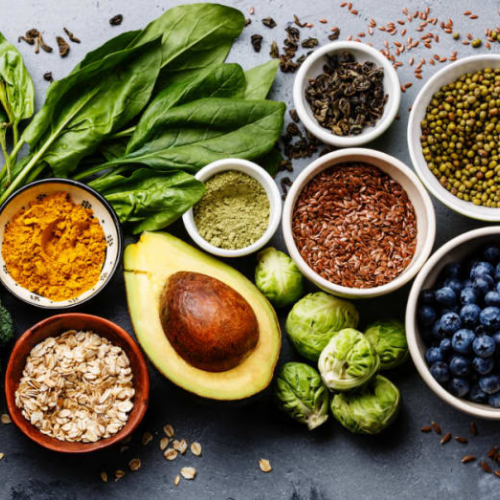Fats, often misunderstood and feared, are essential nutrients that are crucial to our overall health. They are involved in various bodily functions, from hormone production to cell membrane formation. However, not all fats are created equal. Understanding the difference between good and bad fats is key to making informed dietary choices.
The Good & The Bad:
Good Fats: The Best Friends for Your Body
- Monounsaturated Fats: Nuts (such as cashews and almonds), seeds, avocados, and olive oil are rich sources of these heart-healthy fats. They diminish the risk of heart disease, increase HDL (good cholesterol), and decrease LDL (bad cholesterol).
- Use in the real world: Add avocado to sandwiches, drizzle olive oil over salads, or nibble on a handful of almonds.
- Use in the real world: Add avocado to sandwiches, drizzle olive oil over salads, or nibble on a handful of almonds.
- Omega-3 and omega-6 fatty acids are examples of polyunsaturated fats, which are vital for heart and brain function as well as for lowering inflammation. Walnuts, flaxseeds, chia seeds, and fatty fish (mackerel, salmon) are rich sources. Particularly, omega-3 fatty acids have been associated with a lower incidence of heart disease, stroke, and depression.
- Use in real life: Add flaxseeds to yoghurt or eat fatty fish on a regular basis.
Bad Fats: The Unspoken Enemies
-
Saturated Fats: Mainly included in full-fat dairy products, red meat, and tropical oils like coconut and palm, saturated fats can increase LDL cholesterol levels, which in turn increases the risk of heart disease and stroke. Obesity and weight gain may also result from them.
-
Practical Use: Restrict consumption of full-fat dairy products and fatty red meat.
-
Practical Use: Restrict consumption of full-fat dairy products and fatty red meat.
-
Trans fats are artificially produced fats that are present in processed foods such as margarine, baked products and fried foods. They considerably increase bad cholesterol, decrease good cholesterol, cause inflammation and elevate the risk of heart disease, stroke and type 2 diabetes.
- Application in real life: Steer clear of processed foods and choose healthy cooking techniques like grilling, broiling, or baking.
Finding the Correct Balance:
Limiting the consumption of saturated and trans fats is crucial, but limiting fats entirely is not the solution. For optimum health, a balanced diet that contains a range of healthful fats is essential.
Crucial Advice for a Nutritious Fat Intake:
- The key is moderation: Moderate consumption is recommended for even good fats. Overconsumption can lead to weight gain, particularly when it comes to calorie-dense nuts and oils.
- Quality Is Important: Choose healthy fat sources like avocados, wild-caught salmon, and extra virgin olive oil.
- Methods of Cooking: Instead of deep-frying, choose healthy cooking techniques like baking, grilling, or broiling.
- Total Diet: It is crucial to have a well-balanced diet full of nutritious grains, fruits, vegetables, and lean meats.
- Speak with a Healthcare Professional: Speak with a qualified dietitian or other healthcare professional for individualised nutritional guidance.
- Frequent Exercise: To improve your metabolism and general health, include regular exercise in your regimen.
- Hydration: To stay hydrated and assist a number of body processes, drink lots of water throughout the day.
- Stress management: To preserve mental and emotional health, engage in stress-reduction practices like yoga, meditation, or deep breathing.
-
Adequate Sleep: Make getting enough good sleep a priority so that your body can relax, heal, and regenerate.
Together with these other healthful suggestions, you can lower the risk of chronic diseases, fuel your body, and enhance your general well-being by making educated decisions and including healthy fats in your diet. Always keep in mind that the secret to a happy and healthier you is a healthy lifestyle and a balanced attitude to dietary fats.




